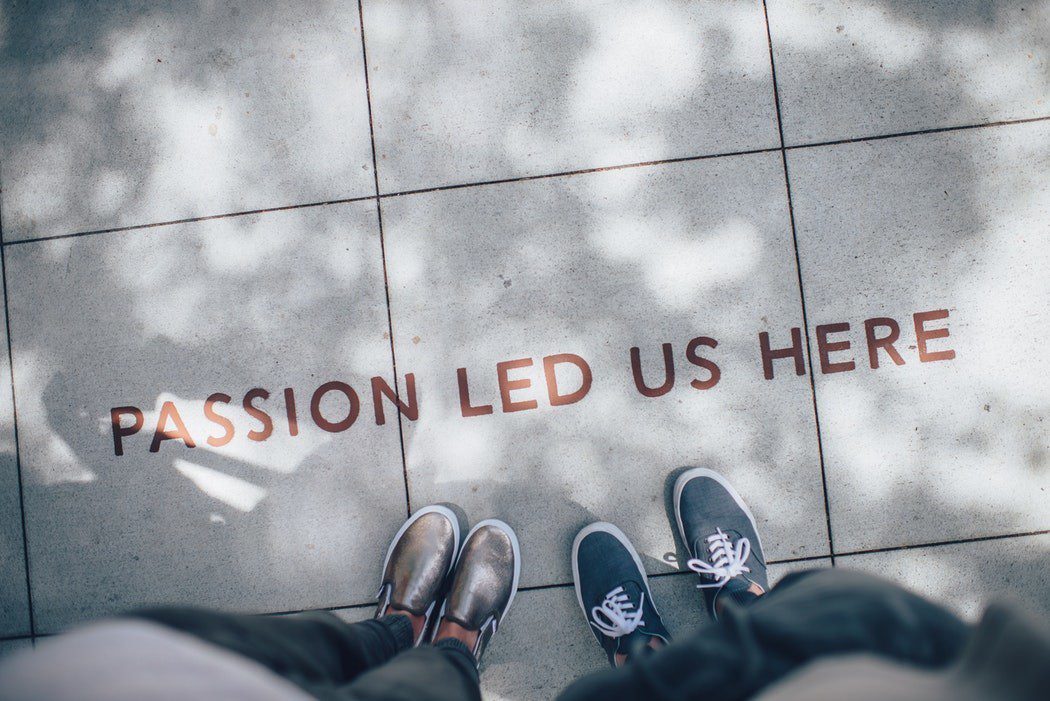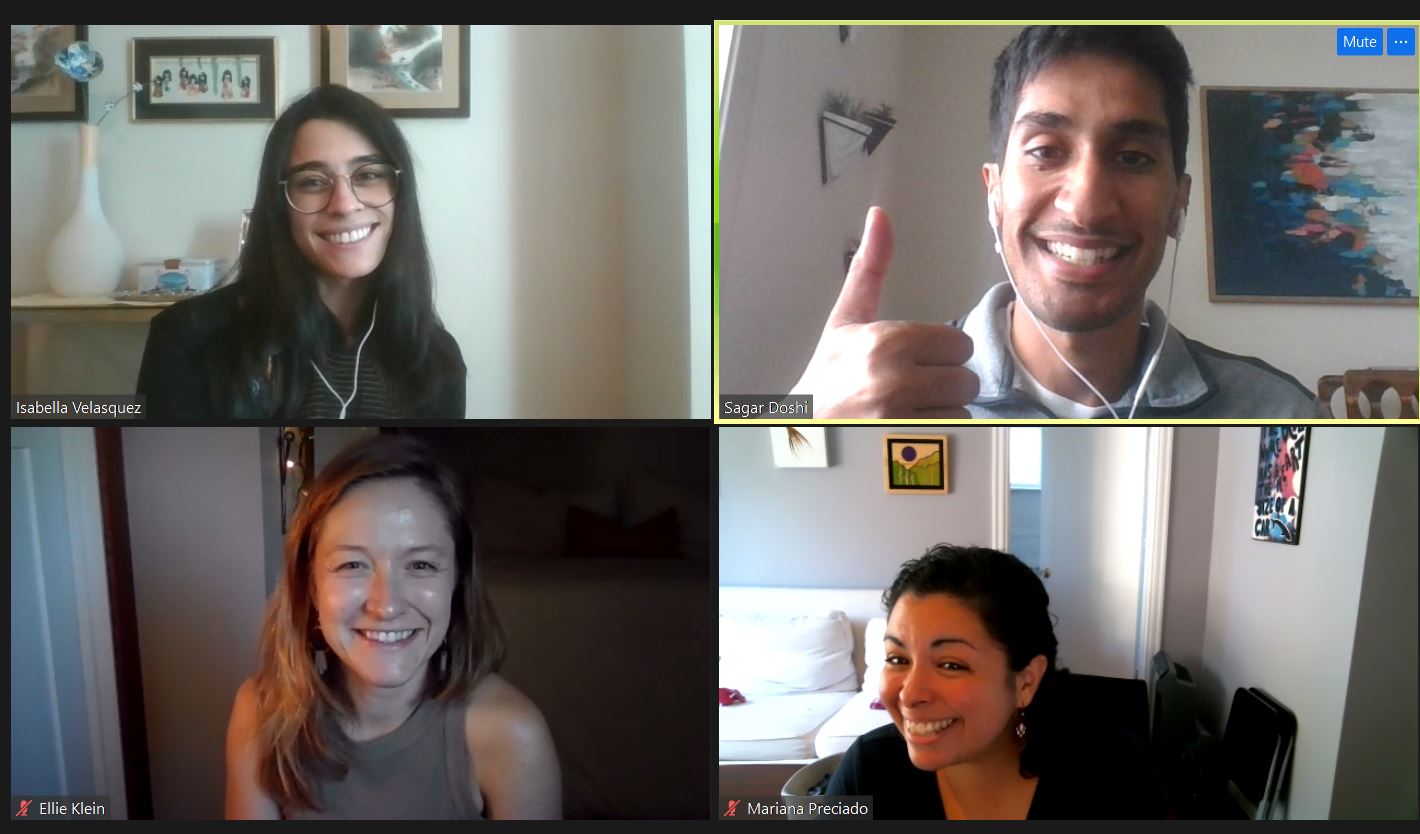Sustainable Innovation: How are companies utilizing sustainability as a driver for innovation?

Written by Nerjada (Ada) Maksutaj, MBA ’20, CRB Fellow
On September 18th, the Center for Responsible Business launched its new focus area: Sustainable Innovation, with a Peterson Speaker Series. We were lucky to hear from panelists representing Google, Levi’s, and IDEO – and begin to tangibly understand how sustainable innovation is taking root across the private sector. Some key takeaways from the session are as follows:

Sustainability can create constraints, but serves as an incredible motivator to innovate.
Michael Kobori, VP Sustainability at Levi Strauss & Co. shared with us how innovation can be born out of sustainability constraints:
“Sustainability creates constraints on the product development process and on other things you do in the business, but that constraint forces you to do something different, forces you to innovate – that’s why we love sustainability for driving innovation.”
In an effort to reduce the use of harmful chemicals, Levi’s created a restricted substances list to help screen chemicals with suppliers. They discovered that potassium permanganate, which was used to fade jeans, was particularly harmful to workers, so they challenged their innovation team to find an alternative that would produce the same look and feel without the negative side effects. The outcome was a laser-powered finishing process that not only eliminated the use of chemicals altogether – but also created significant business value. Benefits included safer and cleaner jobs, improved speed to market, and the opportunity for customers to personalize their jeans both in-store and online.

Sustainable Innovation embraces multi-stakeholder collaboration.
The sustainability challenges we face are complex, and more often than not require multi-stakeholder collaboration to gain significant traction. Rhys Thom, Director of Circular Economy and Sustainability at IDEO, shared the story of the Next Gen Cup Accelerator as an example of competitors in the food and beverage industry coming together to tackle single-use food packaging waste.
Closed Loop Partners, an impact investing firm, partnered with companies including McDonald’s and Starbucks, to sponsor a challenge through OpenIDEO to design the next generation fiber cup. An estimated 600 billion fiber cups are produced each year, the majority of which end up in landfills. The challenge resulted in over 500 concept submissions, and ultimately led to 6 companies joining the accelerator. They are now working to “skill up and scale up to be pilot and procurement ready,” in order to serve as more sustainable solutions across the industry. In fact, Vessel, a reusable cup service provider and entrant of the challenge, is now available throughout the Berkeley campus and in the surrounding area.
Often technologies may already exist, but overcoming business, organizational, and behavioral challenges is key to making a change. Rhys shared how combining human-centered design with systems design – essentially zooming in and out from the human to the system – can help to identify critical nodes in a systemic challenge. Who are the key stakeholders, and what are the barriers and incentives to take into consideration? Partnering with and designing for stakeholders across a system has the potential to unlock the sustainable business models of the future.

We need more intrapreneurs and entrepreneurs focused on Sustainable Innovation if we have any chance of making progress towards the SDGs.
When asked about how students should try to break into roles related to sustainable innovation in their careers – the panelists emphasized the need to have sustainable innovation champions everywhere in organizations. Laura Franceschini, Global Sustainability Strategy & Operations at Google, shared that her direct team consists of only about 50 people, but that sustainable innovation has stemmed from all parts of the company. Google’s Project Sunroof, an initiative leveraging rooftop data from Google Earth to derive free solar estimates for consumers, was actually the product of an engineer who acted as a social intrapreneur.
The UN’s Sustainable Development Goals can be a particularly useful framework to help guide both intrapreneurs and entrepreneurs to understand some of the most pressing global challenges, and to find partners passionate to make progress through sustainable innovation. The recent Global Climate Strike clearly demonstrated that sustainability is what this generation is demanding. What will all of us, with the ability to make business a force for sustainable innovation, do about it?
Weren’t able to attend? Watch a recorded stream of the event on our YouTube page here.

About the Author
Nerjada (Ada) Maksutaj, MBA ’20, CRB Fellow
Prior to Haas, Ada worked as a strategy consultant with Accenture, partnering with clients including the UN, World Economic Forum, and Pearson Education. Her work included digital strategy, business model innovation, and social intrapreneurship. Ada spent her summer internship as a Business Designer at IDEO. She surveyed the company’s impact ecosystem and focused on embedding systems thinking and progress tracking in the creative design process.


